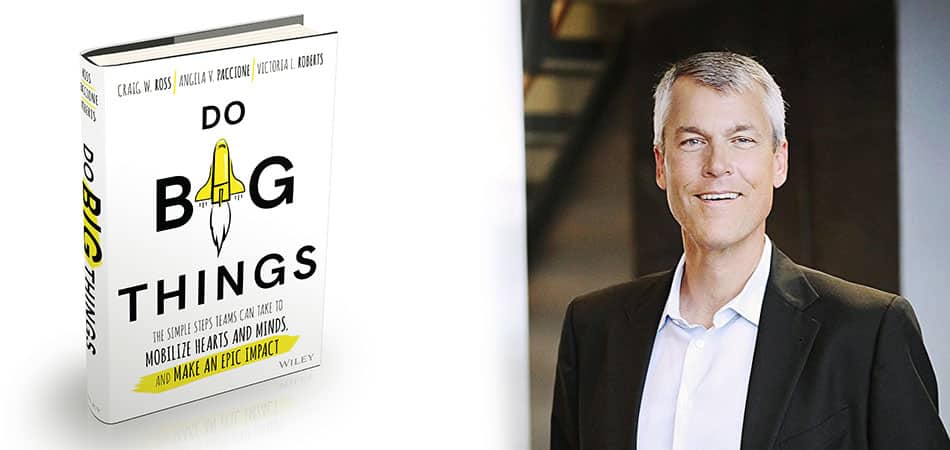One Question that Dramatically Improves Cross-Functional Collaboration

It was painful to watch: The client to whom I was providing coaching was trying to lead a cross-functional meeting. She wasn’t having much success, and her experience isn’t that unusual. In similar situations, most companies struggle with a ‘my-function-first’ mentality from teammates. And it wrecks productivity. In fact, over 90 percent of executives cite a lack of collaboration for their workplace failures.
At the first break in the meeting, I took my client aside and asked her, “Do you want to rock the world your teammates are functioning in right now?”
She looked at me with desperate eyes. “Sure. At this point I’ve got nothing to lose.”
I suggest to her that she ask a specific question—the same one I’ve equipped leaders with that are eager to see team members become more collaborative. And quickly.
“Ask each of them to tell you what role they have on this team,” I said.
My client looked at me as if I was asking her to embarrass herself in front of the team. “I already know what they do,” she answered.
“Stay with me for a moment,” I replied. “You’re right – you think you know what they are supposed to do, and so do they. And their current mindset, as well-intentioned as it is, is obviously not getting the job done.”
She looked at me waiting for more. I obliged her by telling her what most people know in their hearts, yet struggle to make real in daily actions: A cross-functional team only becomes effective when teammates transition from a function-centric mindset to that of enterprise-centric. And from experience, most of us know that this critical shift in thinking won’t be accomplished by preaching, ranting, demanding, dishing out penalties or bonuses. Something more powerful needs to occur.
The choice to be enterprise-centric needs to be every teammates’ idea—not just the team leader’s. This is accomplished by asking the question I equipped my client with: What role do you play?
When she went back into the meeting she demonstrated courage and asked the question she’d been armed with. As predicted, based upon the mindset the team had been modeling, people gave function-centric answers. “I’m the finance guy,” one said. “I’m H.R.,” said another. “Technology are us,” said someone else with a smile.
After everyone around the table and those on the video screen had shared, my client gave her response. Her answer revealed her values; and thus, she opened people’s minds by opening their hearts first.
“My most important role is teammate. And I’m asking you to prioritize that role, too,” she told them.
She went on to explain (and build upon beautifully in her own way) what we’d discussed during the break: Delivering on functional roles is a teammate’s responsibility. To achieve the team’s objective, however, it’s the duty of each teammate to be the best teammate they can be. Otherwise, their functional prowess will be of no use to the team or organization.
At that point, my client looked at me and asked me to explain how they could better play their role of teammate. This was the easy part, because I knew they all had the wisdom in them. Playing your role of being an effective teammate, I shared with them, requires making these three critical decisions more frequently:
1) The Contributor Decision: I choose to bring my best to every interaction.
2) The Activator Decision: I choose to bring out the best in others.
3) The Connector Decision: Together, we choose to partner across the business to deliver shared objectives.
Life is about choices. More specifically, choosing to succeed requires making certain decisions. Many organizations are filled with people of strong values and character—yet, they’ve been taught and conditioned by their organization to be accountable only to their respective functions. Too often, well intentioned reward systems, designed to improve performance, heavily incentivize and motivate the employee to make decisions that enable them to deliver on the goals of their function. This results in competing priorities among functions rather than cross-functional collaboration, and terrible business outcomes.
What’s necessary for cross-functional teams to succeed is for team members to be responsible to their function while being accountable to the enterprise’s objective.
Team members must be bold and purposeful from the start of the team’s lifespan in effecting the mindset change necessary to succeed. Ask team members the one question that dramatically improves cross-functional collaboration: What role do you play? Then equip them to make the three decisions necessary to fulfill their role.
My client reported a month later that since the meeting I’d attended, she had seen an immediate improvement in the thinking and actions of the team. “What the question did is equip us with the ability to facilitate a discussion we all knew we had to have,” she told me. And, once armed with the ability to name and make the decisions they needed to make to play their role of teammate effectively, “nearly everyone has shown up demonstrating the values I’ve been preaching about forever,” she reported.
“And the team’s results?” I asked.
“For the first time, I have confidence that we’ll hit our target,” she answered.
What’s the most important role your team members playing? Prioritize a shift from a function-centric to enterprise-centric mindset, then empower the team with the ability to decide to succeed.
Have you read?
DO BIG THINGS: The Simple Steps Teams Can Take to Mobilize Hearts and Minds, and Make an Epic Impact (Wiley, Aug 28, 2017).
Bring the best of the CEOWORLD magazine's global journalism to audiences in the United States and around the world. - Add CEOWORLD magazine to your Google News feed.
Follow CEOWORLD magazine headlines on: Google News, LinkedIn, Twitter, and Facebook.
Copyright 2025 The CEOWORLD magazine. All rights reserved. This material (and any extract from it) must not be copied, redistributed or placed on any website, without CEOWORLD magazine' prior written consent. For media queries, please contact: info@ceoworld.biz








